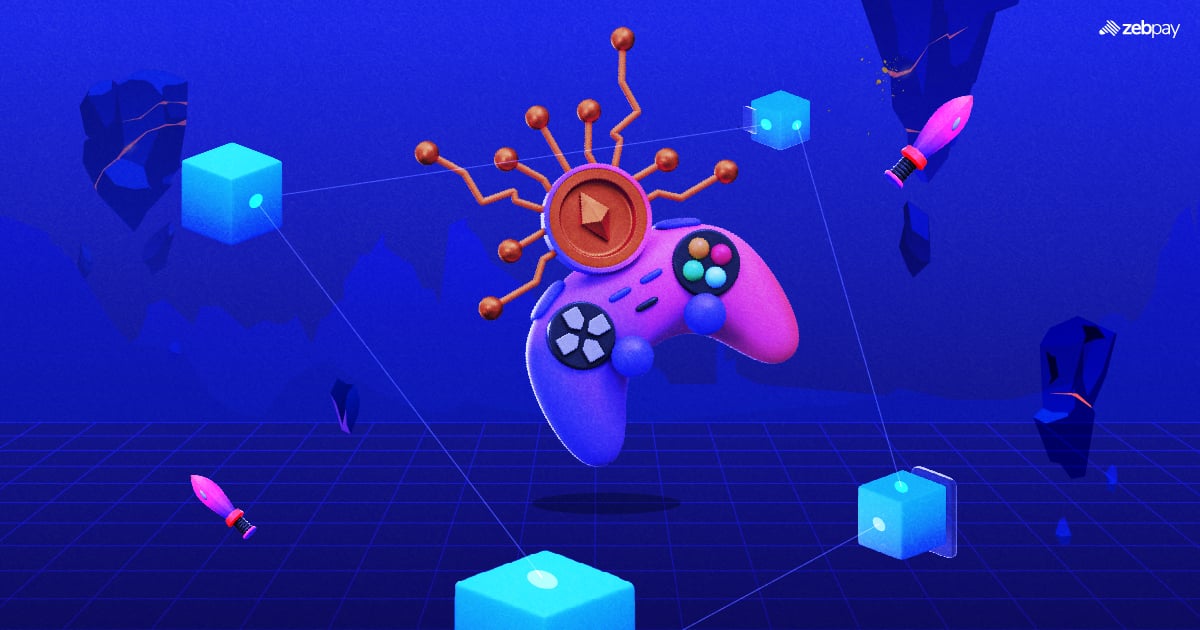Hookup Doc: Your Go-To Guide for All Things Dating
Explore the latest trends, tips, and advice in the world of dating and relationships.
Game On: How Blockchain is Leveling Up the Gaming Experience
Discover how blockchain technology is transforming gaming, unlocking new experiences and empowering players like never before. Game on!
Exploring the Benefits of Blockchain in Gaming: Why It's a Game Changer
The integration of blockchain technology into gaming has the potential to revolutionize the industry by enhancing transparency and security. One significant benefit is the ownership of in-game assets; players can truly own, trade, and sell their items on the blockchain. Unlike traditional games where items are locked within the game environment, blockchain allows for decentralized ownership, giving players the freedom to use their assets across different games and platforms. This paradigm shift not only empowers players but also encourages game developers to create more engaging ecosystems that foster community interaction and economic activity.
Another compelling aspect of blockchain in gaming is its ability to prevent fraud and cheating. Smart contracts on the blockchain can ensure fair play by automating transactions and verifying actions within the game. Immutable records stored on the blockchain provide players with confidence that their achievements and transactions are legitimate. Furthermore, incorporating cryptocurrency can open up new revenue streams for both players and developers, creating a vibrant digital economy that enhances player engagement and satisfaction.

Counter-Strike is a popular multiplayer first-person shooter game that has captivated gamers since its original release in 1999. Players can engage in intense, tactical battles as either terrorists or counter-terrorists, employing strategy and teamwork to achieve victory. Many players look for ways to enhance their gaming experience, and those interested can check out various promotions available, such as the rollbit promo code.
How NFTs Are Revolutionizing In-Game Assets and Player Ownership
NFTs are revolutionizing the gaming industry by providing players with true ownership of in-game assets. Traditionally, players have invested time and money into digital items that remain the property of game developers, often leaving them feeling like they have little control over their virtual investments. However, with the advent of non-fungible tokens, gamers can now buy, sell, and trade their virtual assets on various marketplaces, giving them a sense of real ownership. For instance, in games like Axie Infinity, players can earn income from their digital pets, which are represented as NFTs, leading to a new economy entirely based on these digital collectibles.
This shift towards NFT integration also fosters a vibrant community around gaming. Players can showcase their collections, participate in decentralized gaming ecosystems, and even engage in player-driven innovations. As NFTs become more mainstream, we can expect game developers to embrace these technologies, further enhancing player experiences and democratizing game economies. By implementing blockchain technology, games can ensure transparency and security, making it easier for players to trust the ownership and value of their digital assets.
Is Blockchain the Future of Fair Play? Understanding Transparency and Security in Gaming
The gaming industry is rapidly evolving, and the integration of blockchain technology is paving the way for a more transparent and secure gaming environment. With traditional gaming systems often plagued by issues of cheating and unfair practices, the decentralized nature of blockchain offers a new pathway to ensure integrity in gameplay. By utilizing smart contracts, developers can create rules and regulations that are immutable and verifiable, providing players with a sense of trust. Imagine a world where transactions are recorded on a tamper-proof ledger, ensuring that every in-game purchase, item distribution, and player transaction is visible and accountable.
Moreover, the implementation of blockchain in gaming can revolutionize the way players engage with their games. Through the use of non-fungible tokens (NFTs), players can truly own their in-game assets, which can be bought, sold, or traded without the fear of fraud. This transparency fosters a fair playing field, empowering players and enhancing their overall experience. As the industry moves toward this innovative frontier, understanding the implications of security and transparency in gaming will be crucial for both developers and players alike. Is blockchain the future of fair play? The potential is significant, and its impact could reshape the gaming landscape as we know it.